第44章 CHAPTER VIII(2)
But San Francisco is not herself only. She is not only the most interesting city in the Union, and the hugest smelting-pot of races and the precious metals. She keeps, besides, the doors of the Pacific, and is the port of entry to another world and an earlier epoch in man's history. Nowhere else shall you observe (in the ancient phrase) so many tall ships as here convene from round the Horn, from China, from Sydney, and the Indies; but scarce remarked amid that crowd of deep-sea giants, another class of craft, the Island schooner, circulates: low in the water, with lofty spars and dainty lines, rigged and fashioned like a yacht, manned with brown-skinned, soft-spoken, sweet-eyed native sailors, and equipped with their great double-ender boats that tell a tale of boisterous sea-beaches. These steal out and in again, unnoted by the world or even the newspaper press, save for the line in the clearing column, "Schooner So-and-so for Yap and South Sea Islands"--steal out with nondescript cargoes of tinned salmon, gin, bolts of gaudy cotton stuff, women's hats, and Waterbury watches, to return, after a year, piled as high as to the eaves of the house with copra, or wallowing deep with the shells of the tortoise or the pearl oyster. To me, in my character of the Amateur Parisian, this island traffic, and even the island world, were beyond the bounds of curiosity, and how much more of knowledge. I stood there on the extreme shore of the West and of to-day. Seventeen hundred years ago, and seven thousand miles to the east, a legionary stood, perhaps, upon the wall of Antoninus, and looked northward toward the mountains of the Picts. For all the interval of time and space, I, when I looked from the cliff-house on the broad Pacific, was that man's heir and analogue: each of us standing on the verge of the Roman Empire (or, as we now call it, Western civilization), each of us gazing onward into zones unromanised.
But I was dull. I looked rather backward, keeping a kind eye on Paris; and it required a series of converging incidents to change my attitude of nonchalance for one of interest, and even longing, which I little dreamed that I should live to gratify.
The first of these incidents brought me in acquaintance with a certain San Francisco character, who had something of a name beyond the limits of the city, and was known to many lovers of good English. I had discovered a new slum, a place of precarious, sandy cliffs, deep, sandy cuttings, solitary, ancient houses, and the butt-ends of streets. It was already environed.
The ranks of the street-lamps threaded it unbroken. The city, upon all sides of it, was tightly packed, and growled with traffic. To-day, I do not doubt the very landmarks are all swept away; but it offered then, within narrow limits, a delightful peace, and (in the morning, when I chiefly went there) a seclusion almost rural. On a steep sand-hill, in this neighbourhood, toppled, on the most insecure foundation, a certain row of houses, each with a bit of garden, and all (I have to presume) inhabited. Thither I used to mount by a crumbling footpath, and in front of the last of the houses, would sit down to sketch. The very first day I saw I was observed, out of the ground-floor window by a youngish, good-looking fellow, prematurely bald, and with an expression both lively and engaging. The second, as we were still the only figures in the landscape, it was no more than natural that we should nod.
The third, he came out fairly from his intrenchments, praised my sketch, and with the impromptu cordiality of artists carried me into his apartment; where I sat presently in the midst of a museum of strange objects,--paddles and battle-clubs and baskets, rough-hewn stone images, ornaments of threaded shell, cocoanut bowls, snowy cocoanut plumes--evidences and examples of another earth, another climate, another race, and another (if a ruder) culture. Nor did these objects lack a fitting commentary in the conversation of my new acquaintance.
Doubtless you have read his book. You know already how he tramped and starved, and had so fine a profit of living, in his days among the islands; and meeting him, as I did, one artist with another, after months of offices and picnics, you can imagine with what charm he would speak, and with what pleasure I would hear. It was in such talks, which we were both eager to repeat, that I first heard the names--first fell under the spell--of the islands; and it was from one of the first of them that I returned (a happy man) with _Omoo_ under one arm, and my friend's own adventures under the other.
The second incident was more dramatic, and had, besides, a bearing on my future. I was standing, one day, near a boat- landing under Telegraph Hill. A large barque, perhaps of eighteen hundred tons, was coming more than usually close about the point to reach her moorings; and I was observing her with languid inattention, when I observed two men to stride across the bulwarks, drop into a shore boat, and, violently dispossessing the boatman of his oars, pull toward the landing where I stood. In a surprisingly short time they came tearing up the steps; and I could see that both were too well dressed to be foremast hands--the first even with research, and both, and specially the first, appeared under the empire of some strong emotion.
"Nearest police office!" cried the leader.
"This way," said I, immediately falling in with their precipitate pace. "What's wrong? What ship is that?"